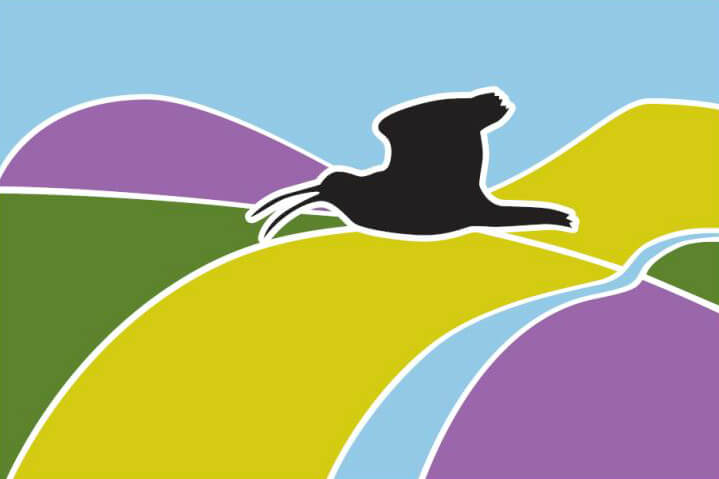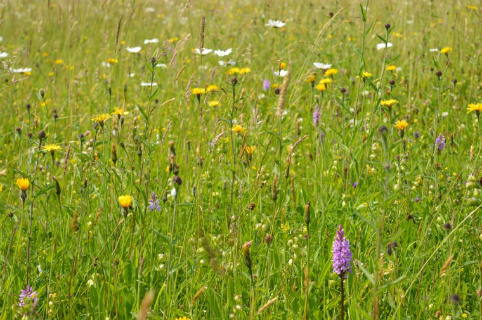This is an archived website, available until June 2027. We hope it will inspire people to continue to care for and protect the South West Peak area and other landscapes. Although the South West Peak Landscape Partnership ended in June 2022, the area is within the Peak District National Park. Enquiries can be made to customer.service@peakdistrict.gov.uk
The 5-year South West Peak Landscape Partnership, 2017-2022, was funded by the National Lottery Heritage Fund.
Conference News: Killing the Golden Goose 2019
07 February 2019
Press Release
‘Killing the Golden Goose’
Recreation, Conservation, & Over-tourism: Sustainability or Bust
South Yorkshire Biodiversity Research Group, the Landscape Conservation Forum and Sheffield Hallam University are organising a 1-day conference on Wednesday April 3rd at Forest Lodge Hotel, Edwinstowe.
The conference is supported by the Countryside Management Association and the Woodland Trust’s Sherwood Treescapes Project.
‘Over-tourism occurs when there are too many visitors to a particular destination. Of course defining ‘too many’ is subjective, but if narrow roads are jammed with tourist vehicles, when wildlife is scared away, when tourists cannot view landmarks because of the crowds, when fragile environments are degraded, that is over-tourism.’
With growing demand for outdoor leisure and sports activities the countryside becomes a contested space with different groups and users vying with each other and with nature for possession. Whilst increased countryside access and use is a ‘good thing’ over-use and over-tourism can cause conflicts and degradation. Furthermore, with swingeing cuts to public services, particularly countryside management, our ability to resolve conflicts and to manage the countryside responsibly and sustainably is compromised. This event addresses the challenges of sustainable countryside recreation and tourism at a time when resources are diminishing, demand is increasing, and local authority countryside management services have been cut. With a loss of relevant of skills and professional status and training, we ask, ‘who can take this forward?’
Our heritage and wildlife landscapes are unique and vulnerable natural or historic resources. They require:
*Careful planning and management
*Knowledge and skills
*Sustainable management while supporting access to visitors.
For example, ancient, veteran and historic trees may provide settings for countryside visiting in landscape parks and forests but are vulnerable to:
*Soil compaction if footpaths run too close and visitor numbers are too high
*Changes to soil fertility through soil erosion but also nutrient increase through dog-fouling
*Both accidental and deliberate fires
Resolving potential conflicts in countryside access requires carefully management planning and the application of accepted tools such as ‘Limits of Acceptable Change’, ‘Conflict Resolution’, and ‘Carrying Capacity’ in order to ensure long-term sustainability. Yet today, as pressures mount but resources decline, these measures of ‘good practice’ are no longer being applied and the results can be very damaging.
Intensive visitor pressure can impact on:
*Footpaths and trails – which become eroded and compromised
*Moorland and heathland vegetation and wildlife – including breeding and wintering birds
*Mammals such as deer , badgers, mountain hares etc
*Riverside vegetation and wildlife – affecting breeding birds and mammals for example
*Vulnerable species like water voles displaced by recreational dog-walking with dogs off-lead and uncontrolled
*Historic buildings, heritage, and archaeological sites which are sensitive to damage from inappropriate usage – vandalism, littering, and erosion.
*The visitor experience of ‘quiet countryside recreation’ as nature becomes a contested space with more active or extreme sports
Economic value: The economic value of countryside visiting, outdoor leisure, sporting activities and wildlife watching is now firmly established. Yet the money tourism and recreation creates is rarely reinvested back into the resource for effective sustainable management. The income from countryside visitors is not reinvested back into things like footpath maintenance, countryside rangering, visitor management, or wildlife conservation. Outdoor leisure and sporting activities generate substantial revenue to the national Exchequer and if carefully nurtured can grow further. However, failure to reinvest leads to:
*A diminished resource
*A poorer quality experience for the visitor
*Ultimately, reduced income to local businesses and to the Exchequer itself hence ‘Killing the Golden Goose’.
The conference aim is to address how can we provide an accessible countryside experience on the one hand, yet safeguard, conserve, and hopefully enhance, often-vulnerable wildlife, nature and heritage on the other?
We welcome a range of excellent speakers from different perspective to talk to the event. Our keynote address will be from Penny Anderson who is an international authority on ecology, nature conservation and the management of human-nature conflicts.
Professor Ian Rotherham of Sheffield Hallam University, SYBRG Chair, says “Countryside visiting has been one of the great success stories of recent decades as we strive to increase access and participation. Indeed, there still remains much to do in terms of the involvement and engagement of a wider range of community groups and particularly minorities. However, despite the need on the one hand and the successes on the other, we are failing to invest public monies to facilitate this usage sustainably, and to manage or resolve user-conflicts effectively. NGOs are stepping in to fill the void left by public countryside services but they too require funding. Over-use and inappropriate use cannot be sustainable and the consequences are damage to sites, loss of protected species, degradation of footpaths, and conflicts between user groups – this is what we call ‘over-tourism’.”
For further details and to book your place, visit the event’s website page https://www.ukeconet.org/goldengoose.html ; or telephone us on: 0114 272 4227
----End Press Release----



